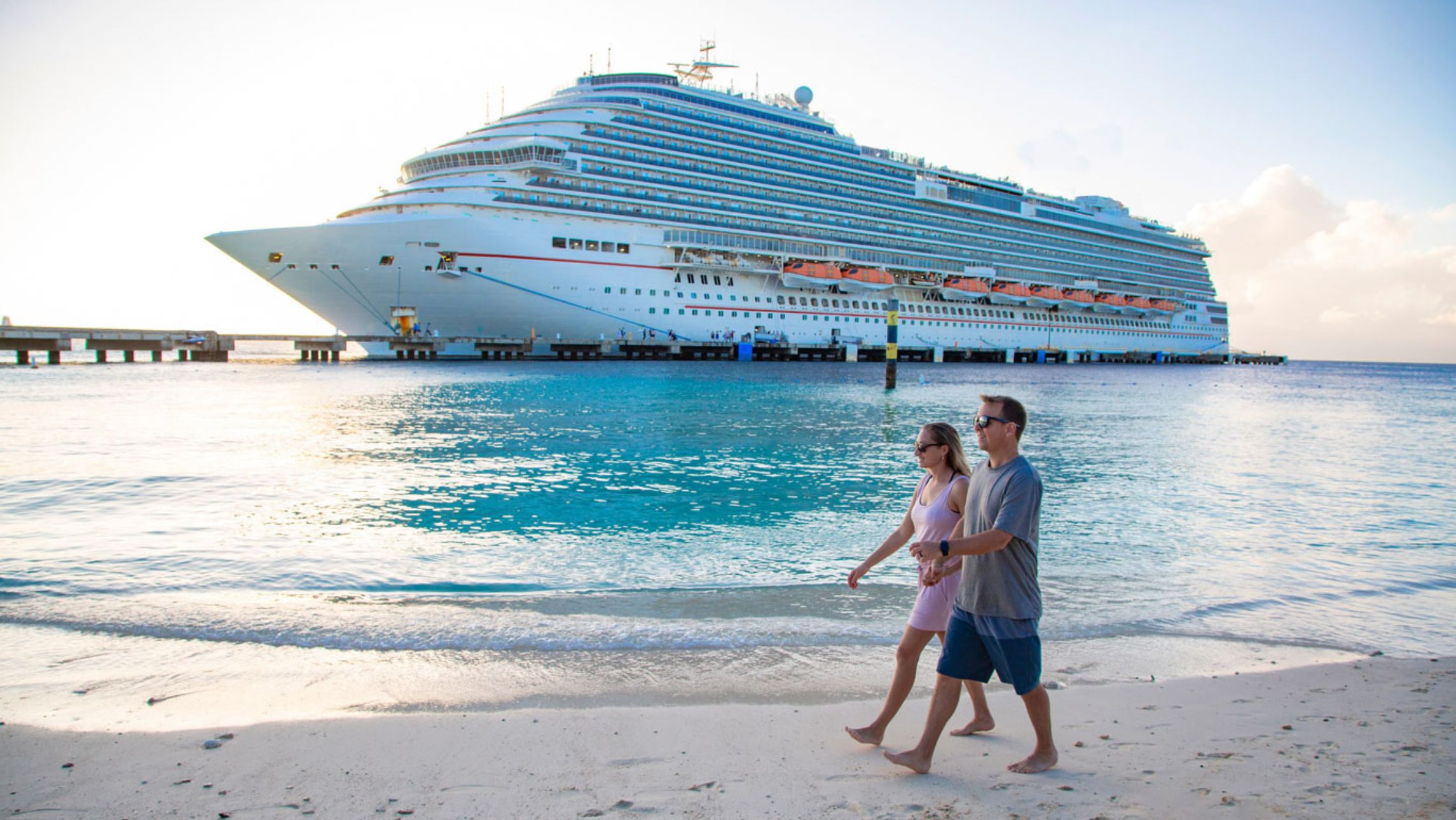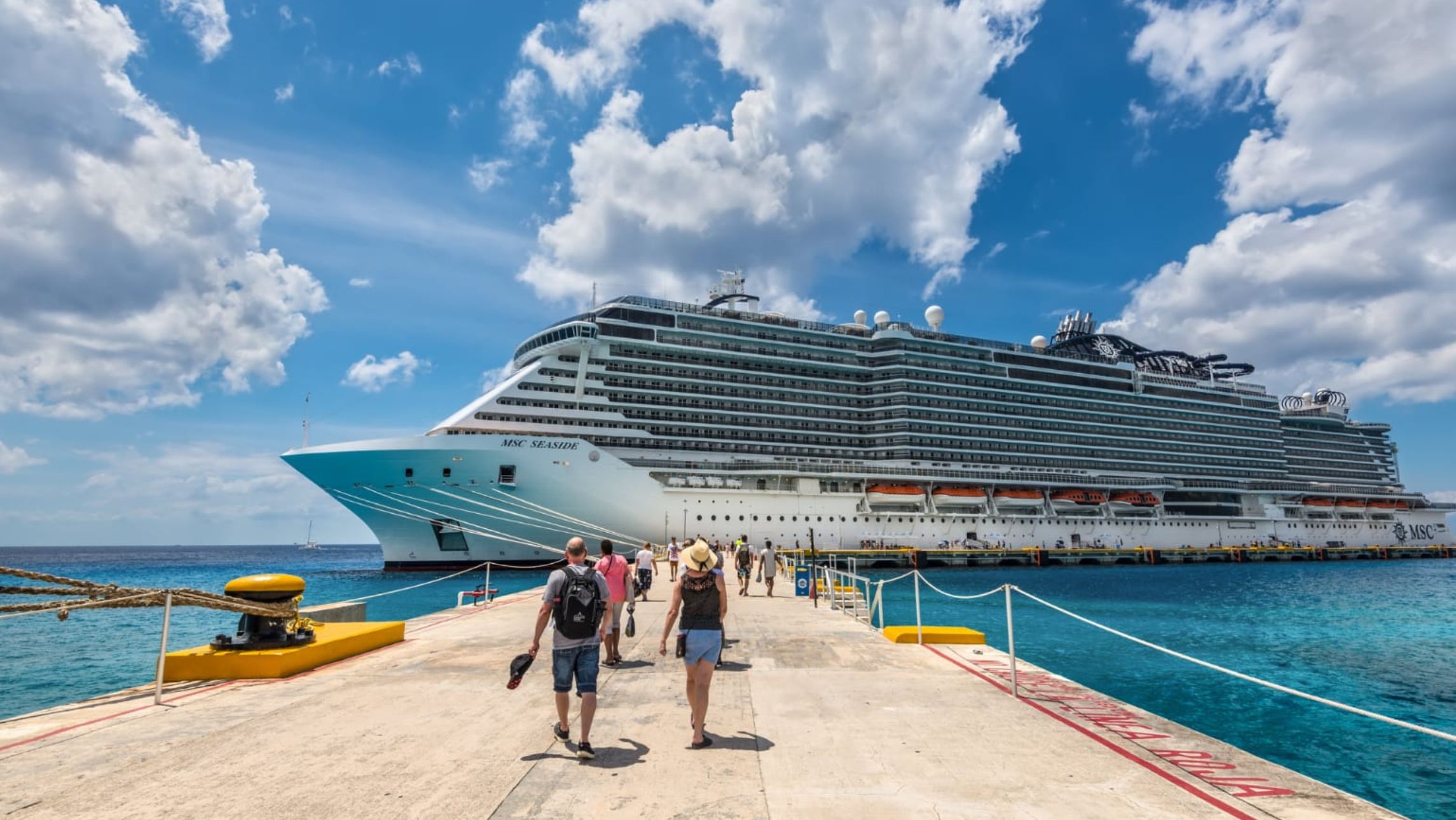Forcing insurance companies to lower the cost of travel insurance for older cruisers was not a good idea, according to the country’s leading not-for-profit advocacy organisation for seniors.
National Seniors Australia general manager Chris Grice says that he understands and appreciates the concerns expressed in regards to the issue of affordability of travel insurance for the older traveller market.
But Mr Grice believes that any move to mandate or regulate insurers to significantly reduce their prices could backfire and ultimately drive insurers from the market.
For the past month Cruise Passenger has been inundated with complaints from elderly Australians about the rising costs of travel insurance.
One reader was quoted $10,000 for travel insurance for back-to-back cruises from North America to Iceland. Others have said that because of exorbitant insurance costs they were not booking future cruises.
All passengers who cruise internationally, or in Australia, must have insurance that covers them for Covid 19 complications.
 Cruise Passenger readers have also complained that insurance offered through credit cards did not cover them for sailing on cruise ships in these times of Covid 19.
Cruise Passenger readers have also complained that insurance offered through credit cards did not cover them for sailing on cruise ships in these times of Covid 19.
“Taking into account rising medical costs, the impact of COVID, repatriation costs (like airlifting a passenger off the cruise ship), and general claims frequency, mandated or regulating insurers to significantly reduce their prices, would not necessarily be in the better interests of our members,’’ Mr Grice said.
“The risk with that is that insurers withdraw from the market which is what we saw during COVID, they go back to days of applying age caps again or pre-existing conditions cover is curtailed, and that would not be a good outcome for older Australians and the travel industry including cruise operators.
“Our organisation has been an active participant in improving accessibility and the coverage available with travel insurance especially for older Australians.
“The challenge previously was finding insurers that would even cover older Australians for travel insurance and, or, cover them for pre-existing conditions.
“Through our involvement in general advocacy as well as our participation in the government sponsored Insurance Reform Advisory Group, improvements were made in regards to coverage access for older Australians.
“I am pleased to see that this access has improved thus enabling some older Australians to travel out of Australia that would not otherwise been able to do because of the financial risk associated with them not being protected should a health related issue occur whilst on holiday.
“In no way absolutely am I an apologist for the insurance industry, however the issue is a complex one and there are many factors that are impacting the cost of cover especially factoring in the pandemic.
“The availability of travel insurance as a product, the coverage provided, and the pricing for said product is determined by the risk associated with the customer to be insured.
“Insurers price their policies on the basis of risk and that risk is linked to the destination, the value of the trip, the duration of the trip, the age of the customer and the health considerations linked to that customer.
“Regrettably, we can’t avoid the fact that the number of health conditions that a person may have experienced or they are being treated for increases typically with age, and it is the health considerations that the insurer is most interested in as this is where the cost exists from a claims perspective.
“Health care costs linked to travel has always been expensive like in the United States where it costs over $25k per day for intensive care treatment, but with the expectation from consumers that they should be covered for COVID now as part of their insurance, insurers are now pricing this additional exposure as part of their policies.
“COVID has changed buying habits of older travelers where they are either catching up for lost travel time due to lockdowns, or they are thinking that they may not get a chance to travel again so we have seen average trip values increase and booking lead times increase which both impact insurance pricing as trip value is insured as part of the cancellation cover linked to the policy.
“Whilst we advocate on behalf of older Australians and our purpose is to represent their interests and call out ageism where it exists, I am somewhat more balanced in my perspective and response to the commentary that the affordability of travel insurance is ageist.
“As insurance is a risk-based product, we cannot avoid the correlation between age and health considerations which can and do flow through to a claim outcome just like insurers charge higher premiums like thousands of dollars (and substantial excesses) for an 18-year old to comprehensively insure their car versus a 65-year old which might cost them $650 approximately to insure, or the $10,000 premium that borrowers have to pay for lenders mortgage insurance which typically affects young borrowers compared to older more established borrowers that don’t.
“My point is that age is not the consideration when it comes to insurance, it is the history, the experience, track record or individual circumstances that apply.
Travel agent, and former national newspaper travel advice columnist, Kim Culyer says that travellers have few options when it comes to buying the right travel insurance.
“As a travel agent I strongly recommend all my clients are covered by an appropriate level of travel insurance,’’ Ms Culyer – who was Doc Holiday for five years in News Corporation’s Sunday papers – said.
“I encourage them to take a level of cover high enough to reimburse any costs they may incur as a result of unforeseen circumstances
“Post pandemic it is imperative you have a policy that includes Covid cover but there’s only a handful of companies currently providing this. It ensures you are covered for cancellation and incurred costs due to Covid related incidents.
“Pre-pandemic cruises were covered in general, now they must be specified and added to the policy – incurring an additional fee.
“It provides cover for unused pre-paid excursions, missed shore visits and missed port connections. There’s also compensation for involuntary cabin confinement.
“Insurance is mandatory for any multi-night cruise both domestically and internationally. While Australian are covered under Medicare for medical treatment in Australia, they are not covered for cancellation fees and extra costs if they need to be quarantined.
“Some domestic cruises also enter international waters, so people need to check which policy they need.
“Some people are provided cover by their credit card. I urge people to read the PDS (product disclosure statement) very carefully because often this is a basic cover and does not include Covid 19 or Cruise.’’
Cruise Passenger asked a leading bank that offers travel insurance as part of its Platinum and World Tier credit cards and a spokesperson confirmed that coverage did not include assistance for passengers who contracted Covid while on a cruise.
The spokesperson said that could be purchased separately from insurance providers.
Tell us what you think about this story in our comments column.
Peter Lynch, Publisher









It is getting ridiculous when insurance cost more than your domestic cruise. We are just doing Domestic in Aust and only at sea two days other days in port In Aust cities. We have private health insurance I feel safe with this my husband says no must do insurance. Why ?
My Partner and I have just returned from a 44 night trip/ Cruise on the 3 Queens/land. It cost $6 half thousand. We paid it because we needed to be sure we were covered for. Covid because we travelled to Rom, London,Spain, New York, Canada and Alaska. Both of us are in good health (77 & 83) and We kept perfect health while we away. It was a lot of money to pay and I feel we should be reimbursed some of our money.
Which are the companies that cover you for covid , our last cruise was cancelled by the company,alliance would NOT pay out on our travel insurance that we paid almost a year in advance,travelled from 28.3.20 to 5.4.20 although we had a written letter from the cruise line that could not provide ports of call.we lost everything
Maybe as a follow up article, you could explore the travel insurance company’s that actually do provide Cruise cover with Covid included. That would greatly assist your subscribers in making an informed decision going forward.
At the beginning of the Pandemic Princess cancelled our 42 day cruise. They returned our money through our travel agent. The travel insurance companies, who were not involved in this, just pocketed everyone’s travel insurance. I sent many emails and tried numerous times to contact our insurer by phone but got no reply. I know a multitude of others who did the same thing. The travel insurer companies would have been laughing all the way to the bank so there is no need to increase their costs as they are now doing.
I recently took out domestic cruise cover with a reputable insurer to include Covid and paid the appropriate amount. On receipt of the emailed pd cover I found out that my domestic cruise and Covid cover had been removed. Questioning this immediately, I was told they had just changed the policy and I would now need to take out an international cruise cover policy to cover Covid as well. I was then quoted 3 times the cost for exactly the same cruise. Naturally I refused this and requested the policy be cancelled and money refunded. That was 2 months ago, still no refund.
My wife & I have just paid for our 2 week New Zealand cruise in November & our insurance cost just over $1400 as my wife has ongoing health problems that are well regulated by her medications. We consider the price we paid is a necessary additional cost along with the cruise as it gives us peace of mind that if the worst happens everything is covered.
I have no problem with insurance company’s making money, but I am not taking out a $5,000 policy for a $7,000 Cruise.
Mabey the Cruise company’s should look at covering the passengers them selves.
Yes and No. The situation is that my wife and I will be 80 this year. We have a cruise booked for October and it looks like it will be our last cruise. This is simply because of 1. insurance – availability and cots thereof.
2. The cost of making use of available medical services on the ship.
If the situation was different, then we would be taking at least one cruise per year. It now looks like we will be taking all future holiday within Australia.
Wayne Collins
Who every wrote this price of garbage needs to get his facts correct …